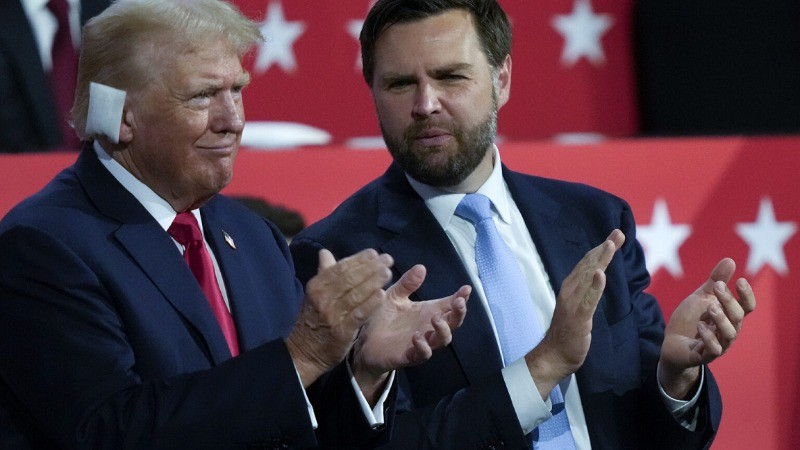
The United States faces the possibility of a government shutdown as President-elect Donald Trump and Vice President-elect JD Vance urge Congressional Republicans to reject a bipartisan funding bill. If an agreement is not reached by Friday night, federal agencies will be forced to close, leaving hundreds of thousands of federal workers furloughed and vital government services disrupted.
Trump and Vance Urge GOP to Stand Firm
President-elect Trump and Vice President-elect Vance issued a joint statement calling on Republican lawmakers to reject the proposed funding extension. Republicans must GET and TOUGH and SMART, If Democrats threaten to close the govt unless we give them everything they want, CALL THEIR BLUFF..... Their statement followed criticism of the bill by tech entrepreneurs like Elon Musk as well the other prominent figures. Republican House Majority Leader Steve Scalise signaled that the bill’s chances of passage were slim after Trump's intervention.
What Happens During a Shutdown?
During a government shutdown, federal employees are divided into two categories: essential and nonessential. Essential employees continue working but face delayed pay, while nonessential employees are furloughed without pay. In the past, such as during the record 35-day shutdown from 2018-2019, around 800,000 federal workers went without paychecks.
Essential services like the military, Social Security, Medicare, and federal law enforcement would continue. However, nonessential services, including certain public health programs and national parks, would halt operations. Passport and visa processing may slow, holiday travel could face delays, and economic growth could take a hit.
Impacts on Daily Life and Economy
Transportation: Air traffic controllers and TSA screeners would remain on duty without pay, potentially causing longer security lines and flight delays.
Health Services: Agencies like the CDC and FDA would scale back, delaying food safety inspections and clinical trials for new treatments.
National Parks: Parks and monuments would close, although some states might step in to fund operations temporarily.
Federal Courts: Courts could operate for a limited time using reserve funds but would eventually reduce activity.
Military and Veterans
While active-duty military personnel would remain at their posts, half of the Pentagon's 800,000 civilian employees could be furloughed. Veterans would continue receiving benefits, but delays in other areas could strain support systems.
Foreign Affairs and Research
U.S. embassies and consulates would stay open as long as fee-generated funds are available, but nonessential travel and foreign aid programs could face cuts. Scientific research through agencies like NASA and the National Institutes of Health would pause, disrupting critical projects.
Political Implications
The political standoff comes as Congress approaches its holiday adjournment. Lawmakers will continue to receive pay during the shutdown, even as their staff face furloughs. In past shutdowns, essential offices like the National Security Council remained fully operational, while others, such as the Office of Management and Budget, scaled back significantly.
The looming shutdown highlights deep divisions in Washington, with critical services, workers, and the economy hanging in the balance.